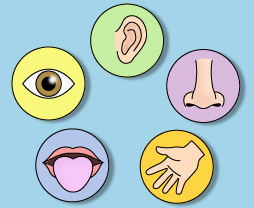Odor Engineering and Experience Design
Sunday, December 4th, 2011 Experience is primarily driven by what we see and hear. Of course, the other senses – smell, touch and taste play a role but for the most part it is minor. This creates an innovation opportunity:
Experience is primarily driven by what we see and hear. Of course, the other senses – smell, touch and taste play a role but for the most part it is minor. This creates an innovation opportunity:
How to engage the sense of smell, touch and taste in experiences that otherwise lack them as a defining feature.
For example, we can enhance learning, gaming, shopping and night clubbing experiences by engineering the proper odors. A recent article in Chemosensory Perception, Can Ambient Scent Enhance the Nightlife? found:
“The three scents tested were orange, seawater, and peppermint. These scents were shown to enhance dancing activity and to improve the evaluation of the evening, the evaluation of the music, and the mood of the visitors over no added scent. However, no significant differences were found between the three scents”
Scents are powerful. Olfaction is part of the brain’s Limbic system which supports long-term memory, emotion and behavior.
Odors elicit associations, emotions, moods and mental stimulation. They help form rich memories and can support savoring or other complex psychological states. While we spend a lot of time and attention on eliminating unpleasant odors, the opportunities to enhance experiences by adding engineered odors has just started.
Interested to hear from readers that have examples of how to use odor to enhance experience.